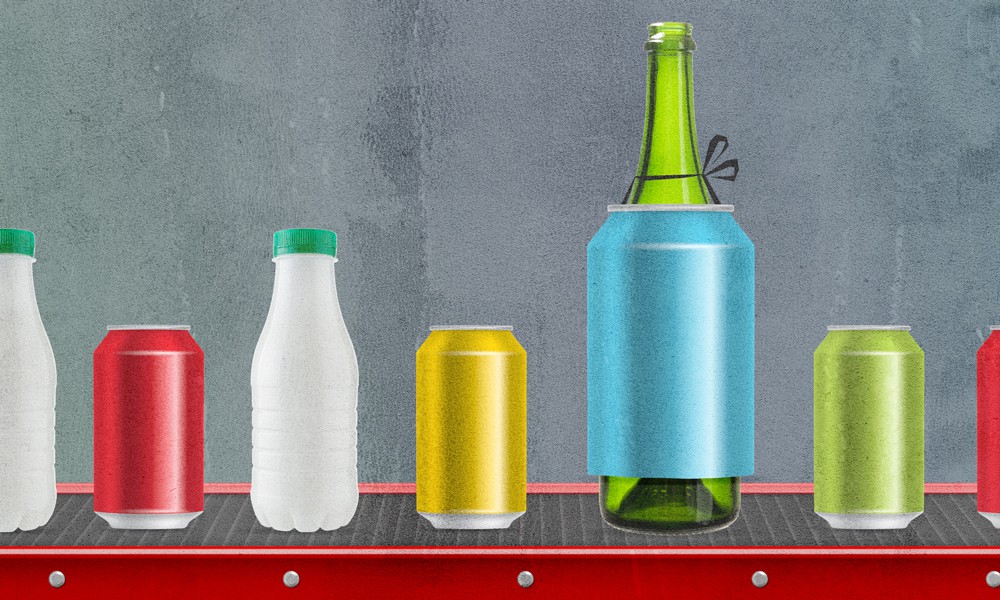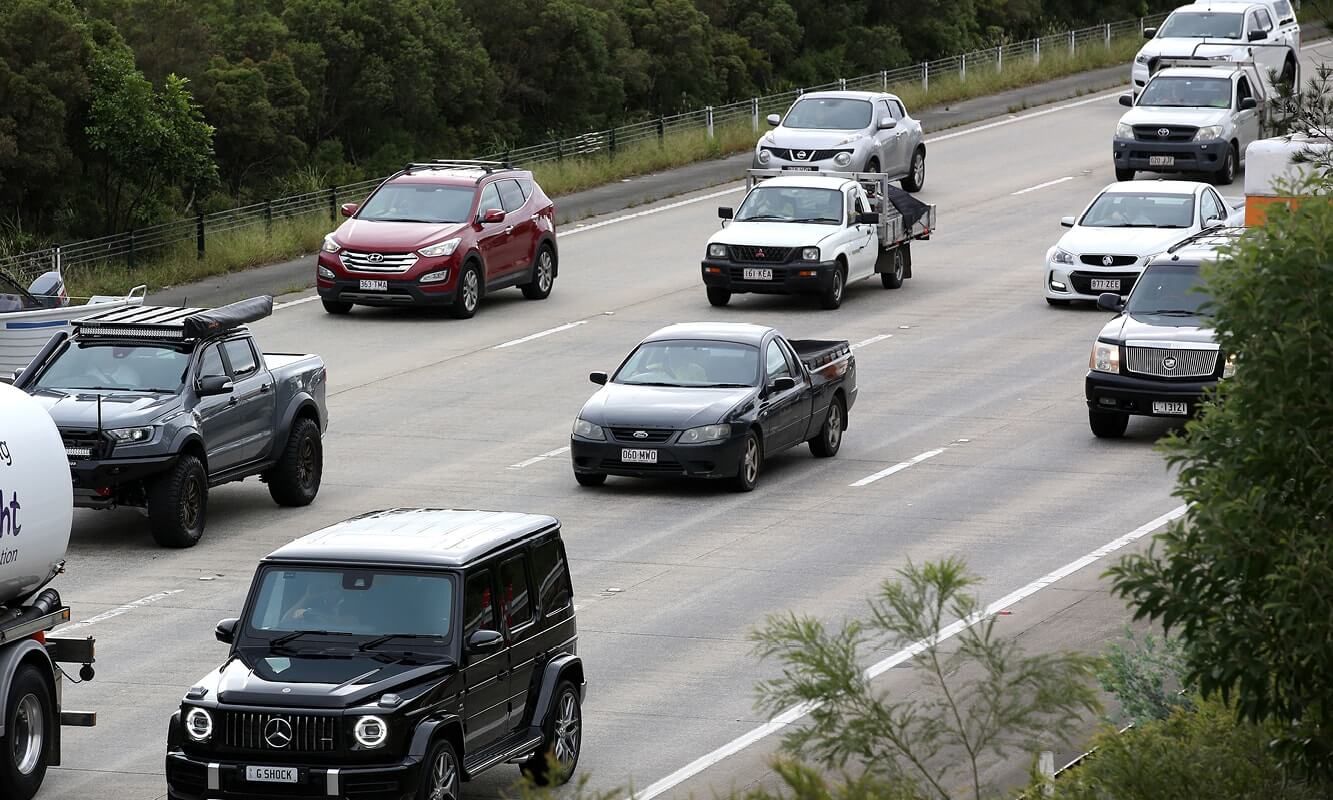This content has been archived. It may no longer be relevant
Ever wondered why wine bottles are not included in the Queensland container deposit scheme?
The answer is that, in 1974, the South Australian Environment Minister decided that the exclusion of wine bottles was needed to protect South Australia’s wine exports to other states.
The story of how the decisions of the Dunstan Government have rippled through time to contemporary Queensland is an adventure in circular law reform and how harmonised national laws can be held to ransom by strong local interests.
So what is the Queensland container deposit scheme?
The Queensland Containers for Change scheme is a beverage container deposit scheme (CDS) aimed at recycling the 2.7 billion single-use drink containers that Queenslanders use each year. It is a product stewardship arrangement whereby the costs of operating the scheme and recovering the containers for recycling are paid for by drink manufacturers and consumers are incentivised to return empty eligible containers to depots for a 10-cent deposit per bottle.
Commencing in 2018, the Queensland scheme is very closely modelled on the nation-leading South Australian scheme which commenced in 1977. The SA model has been implemented in New South Wales and the Australian Capital Territory, and plans are afoot to varying degrees in other jurisdictions.
So what happened in South Australia?
Determined to address the problems of litter caused primarily by softdrink cans and stubby beer bottles, the Dunstan Government introduced the highly controversial Beverage Container Bill into South Australian Parliament on 13 March 1974. The then Minister of Environment and Conservation, G.R. Broomhill, said in bringing the Bill:
“This is a Bill to impose a mandatory returnable deposit on beverage containers. The principles on which it is based are not new…
“The apparent novelty of requiring a compulsory returnable deposit on all beverage containers is an illusion. It was first imposed in Oregon in October, 1972. It was imposed in Alberta in January, 1973, in Saskatchewan in August, 1973, and in Vermont in September, 1973. The Province of Manitoba has announced that it will introduce such a legal requirement in the near future …
“I am not unaware of the interest our prior notice of intention to introduce such legislation has generated. It would, of course, be impossible to have lived in South Australia over the last few months without being so aware as a result of the massive advertising campaign so freely undertaken by some sectors of the packaging industry. Consequently, it is necessary to explain some of the thinking that lies behind the introduction of this measure today.
‘…a problem which is particularly obvious in coastal and other areas with many summer visitors and tourists.’
“This measure is introduced to resolve a problem of great public interest that has been drawn very strongly and frequently to the Government’s attention by councils, as well as the Local Government Association, health authorities, including the National Health and Medical Research Council, the beverage-packaging industry, the press, many members of the public of South Australia, and by members on both sides of this House. Most of the complaints received referred to increasing litter caused by non-returnable beverage containers, a problem which is particularly obvious in coastal and other areas with many summer visitors and tourists.”1
Fierce debate then ensued about the cost to industry, the loss of employment in packaging industries, the crippling effect on South Australian exports and the role that simple education campaigns could play instead of regulation.
In the parliamentary debates, the Member for Kavel summarised the plight of the wine and spirits industry saying:
“I wish to refer to the effect of the legislation on the wine and spirit industry. I know that the Minister has made some public statements about this matter but, as the Bill stands, these beverages are within its compass.
“Therefore, I believe it is appropriate that I should point out some of the disadvantages to the industry if the Bill is passed as it stands. However, we are confident that the Minister will keep his word, given publicly, and exempt these commodities.
“Some peculiar features are associated with the wine and spirit industry. South Australia produces 70 per cent of the wine produced in this country, and of that quantity 70 per cent is exported to other States. That illustrates how ludicrous it would be for this legislation to apply to this industry, as the bulk of its production goes to other States.
“This also highlights the importance of having some sort of unanimity among the States on this matter… There will be complete and utter confusion in the wine industry if two sets of bottles have to be used, one set designed to meet the requirements of this Bill, and the other set designed to be sent to the other States, which take 70 per cent of our production and in which no provision similar to that in this Bill would operate.
“It is impossible when bottling wine to stop at a certain point. For example, if a 5000gall. (22,730 l) vat were being bottled, it would be impossible to stop the bottling process after 2000gall (9092 l) had been bottled for the local market and then bottle the remainder for export. Wine cannot be bandied in that way. It must be a continuous process, otherwise there is ullage, evaporation and oxidation. Once bottling of a large vat commences, it must be continued until all the wine is bottled. Therefore, the placing of wine in different types of bottle and container would be impossible.
‘People do not habitually drink wine and throw the bottles out of car windows.’
“Moreover, I do not believe that wine bottles present a great problem at present. … People do not habitually drink wine and throw the bottles out of car windows, and so on. Since the Second World War table wine consumption has greatly increased, but this has happened in a fairly civilized way. A problem associated with wine drinking has arisen in isolated areas of the State, but that is a different matter. Most wine is consumed with meals at a person’s home or in a restaurant. Bottles do not become litter, because they are collected from restaurants…
“If we are to take what the Minister said at face value (and we have no reason to doubt the honesty of his public statement), I hope that he will consider seriously the position of these industries.”2
Thus it was that wine and spirit bottles were excluded from the great South Australian experiment.
So what happened in Queensland?
Many years later, the Queensland scheme followed the South Australian and other schemes operating at the time it was devised. In response to calls to the parliamentary committee review of the Bill to include all containers in the scheme, the Queensland Department of Environment and Heritage Protection noted:
“In developing the list of eligible beverage containers the department took into consideration the beverage products and containers that were already included and excluded in schemes operating in other states and the soon to commence New South Wales scheme. The department also considered the types of containers that are most commonly found in the litter waste stream. This is why plain milk and wine are currently excluded from the scheme.”3
In 2019, the Queensland Minister for the Environment was asked a question on notice about when we might see wine bottles included in the container deposit scheme. The reply from Minister Leanne Enoch provided a tantalising promise of change:
“An important design consideration for the Queensland Container Refund Scheme was consistency with container schemes in other Australian states and territories.
“To minimise costs and maximise efficiency across the nation, the list of containers accepted by the schemes in New South Wales, the Australian Capital Territory, South Australia and Queensland should be as similar as possible.
‘There is a possibility of future change.’
“There is a possibility of future change. The South Australian Government is currently conducting a review of its container scheme. In operation since 1977, it is the oldest in the nation.
“One of the areas of their review is the range of containers that are included under the scheme. This review is being watched closely by other states and its outcomes will contribute to national discussions on the issue.”4
So are we back in South Australia?
Commencing in January 2019, the South Australian Government launched a review of its historic container deposit scheme, conducting focus groups, receiving submissions and working toward issuing a discussion paper. Most of the submissions received by the review opposing extension of the scheme were from the wine industry and related to wine bottles.
In voicing the opposition of the wine sector to the potential inclusion of wine bottles, Tony Battaglene, CEO of Australian Grape & Wine, said:
“As an agricultural industry, the continuing success of the Australian wine industry relies on sustainable environmental practices. While recycling is strongly supported as a part of our environmental commitment, no compelling evidence has been presented to support the inclusion of wine bottles in South Australia’s CDS.”
He said the fact that wine bottles represented such a small portion of the SA litter stream, “reflects the fact that almost all wine bottles are enjoyed in the home or at licensed premises,” and “[n]o other states or territories include wine bottles in their CDS arrangements even after the introduction of CDS legislation in NSW and Qld in 2018 and 2017 respectively”.
“The wine industry is a significant contributor to the South Australian economy, and is the highest single export sector. A change to the CDS to include wine bottles has the potential to jeopardise the financial sustainability of the wine sector, which could have dramatic flow on impacts throughout the supply chain including an impact on regional employment.”5
Following a flurry of activity in late 2019, the South Australian review appeared to be slowed by COVID-19 in 2020. A discussion paper was meant to have been released in mid-2020, but is yet to appear and further rounds of consultation with industry were promised. The ultimate outcome and direction of any reform are yet to receive daylight.
So where are we then?
The similarities of the arguments used in 1974 and 2019 to oppose the inclusion of wine bottles to the South Australian scheme are striking. But one thing remains true, whether wine bottles are included or not in the Queensland Containers for Change scheme will likely be closely linked with the preferences of South Australian wine exporters.
Footnotes
1 13 March 1974, House of Assembly, South Australia Parliament, Hansard page 2441.
2 20 March 1974, House of Assembly, South Australia Parliament, Hansard pages 2609-2610.
3 Agriculture and Environment Committee Report on the Waste Reduction and Recycling Amendment Bill 2017, page 23 at parliament.qld.gov.au/Documents/TableOffice/TabledPapers/2017/5517T1322.pdf.
4 parliament.qld.gov.au/documents/tableOffice/questionsAnswers/2019/634-2019.pdf.
5 wbmonline.com.au/australian-grape-wine-deeply-concerned-about-container-deposit-scheme/.














One Response
I have sent the QLD state government’s CO-EX photographs of wine bottles that have been dumped on the roadsides and along bush walks to try and prompt their inclusion in the state’s Containers for Change scheme. It is high time wine & spirit bottles are included on both environmental & health & safety grounds especially as broken glass is a hazard to both wildlife & humans, particularly children. When out with my family dogs I have collected the vast majority of nearly 28,000 eligible containers since the scheme started with all proceeds on-passed to charities via Rotary of which I am a member. Overall, I have now coordinated the return of more than 104,000 such containers from club members, relatives & friends and therefore maintain my recommendation should be heeded by government.